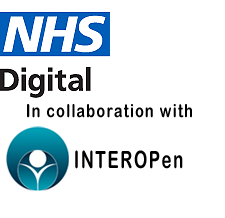1. FHIR Resource Conformance Requirements
- Where Care Connect profiles exist for resources they MUST be used.
- The Care Connect profiles MUST be used within the API and implementation and feedback is encouraged.
- The Core API can be extended to use resources for which no Care Connect profiles currently exist.
- If no Care Connect profile exists then engagement with INTEROPen is encouraged so that profiles can be considered for later product releases.
- When using Care Connect profiles and extensions are required, Care Connect extensions SHOULD be used.
- Care Connect profile extensions should be the first option when extending profiles. If a local use case requires further extension then this should be initially a “non” Care Connect extension. Engagement with the INTEROPen community is encouraged to validate the extension.
- When using the Care Connect Core API the implementer can choose which resource types to support.
- All resource types are optional (even Patient). The implementer can choose the resources that meets the use cases being catered for.
- Resources MUST identify the CareConnect profile supported as part of the FHIR Base Resource i.e. populate the FHIR
meta.profileattribute for each instance.
2. Server Conformance Requirements
This section outlines conformance requirements for Care Connect Core API Servers, identifying FHIR profiles, content types, RESTful operations and the search parameters to be supported.
2.1 Conformance Requirements for Care Connect Core Server
- MUST support HL7 FHIR STU3 version 3.0.1.
- MUST Implement REST behavior according to the FHIR specification
- MUST support JSON format for all CareConnect API interactions and SHOULD support XML format.
- MUST declare a CapabilityStatement identifying the list of profiles, operations and search parameters supported.
- In order to be a compliant FHIR server, Servers MUST expose a valid FHIR CapabilityStatement instance. See the capabilities interaction.
- This MUST conform to the Care Connect Core API
RequirementsCapability Statement.
2.2 Profile Interaction Summary
All servers MUST make available the read and search interactions for the resources the server chooses to support.
Summary of the Care Connect Core API search criteria
Specific server search capabilities are described in detail in each of the resource sections.
| Resource Profile | Supported Searches | Supported Includes |
|---|---|---|
AllergyIntolerance |
patient, patient + code, patient + clinical-status, patient + verification-status | |
Condition |
patient, patient + clinical-status, patient + category | |
Encounter |
patient, patient + date, patient + type, patient + type + date | |
Immunization |
patient, patient + vaccination-procedure-code, patient + notgiven, patient + status | |
Location |
identifier, name, address, address-city, address-postalcode | |
Medication |
||
MedicationRequest |
patient, patient + status | MedicationRequest.medication |
MedicationStatement |
patient, patient + status | MedicationStatement.medication |
Observation |
patient, patient + date, patient + code, patient + date + code | |
Organization |
identifier, name, address, address-city, address-postalcode | |
Patient |
identifier, given, family, birthdate, gender, name, name + gender, name + birthdate, family + gender, given + gender | |
Practitioner |
identifier, name | |
PractitionerRole |
organization, practitioner | |
Procedure |
patient, patient + date |
For date type search requests, servers SHOULD support the following modifier prefixes to the parameter value:
- greater than or equal to
ge - less than or equal to
le - greater than
gt - less than
lt
2.3 Capability Statement
FHIR Servers MUST support the Care Connect Core API Requirements Capability Statement
2.4 Content Types
This section details FHIR Server content type conformance requirements:
| MIME Type | Rationale | Conformance |
|---|---|---|
application/fhir+xml |
Server supports formal MIME-type for FHIR resources |
SHOULD |
application/fhir+json |
Server supports formal MIME-type for FHIR resources |
MUST |
application/xml+fhir |
Server supports DSTU2 MIME-type for backwards compatibility |
SHOULD |
application/json+fhir |
Server supports DSTU2 MIME-type for backwards compatibility |
MUST |
application/xml |
Server to gracefully handle generic MIME types |
SHOULD |
application/json |
Server to gracefully handle generic MIME types |
MUST |
text/json |
Server to gracefully handle generic MIME types |
MUST |
- The server MUST support the optional
_formatparameter in order to allow the client to specify the response format by its MIME-type. If both are present, the_formatparameter overrides theAcceptheader value in the request.
3. Client Conformance Requirements
This section outlines conformance requirements for Care Connect Core API Client applications:
- When using the Care Connect Core API to access clinical data, a verified NHS number SHOULD be used.
4. Security Conformance Considerations
All Core API transactions must be secured appropriately with access limited to authorized individuals, data protected in transit and appropriate audit measures taken.
Implementers should be aware of the security considerations associated with FHIR transactions.
For the purpose of the Core API, minimum security conformance requirements are as follows:
- Systems MUST support Transport Layer Security Version 1.2 (TLS v1.2) or higher for all transmissions
- For authentication, systems SHOULD support Authentication Types as used within the NHS Identity Service.
- For authorisation systems SHOULD support the OAuth 2.0 standard. See the NHS Identity Service Authorisation Service Overview
- Systems SHOULD use ID & Access Tokens as specified here
- Systems MUST implement consent requirements as per local policies.
5. NHS Number
NHS Number SHOULD be used with the Care Connect Core API. If the NHS Number is used, this MUST be a verified NHS Number. This can be achieved using a spine accredited system, a Demographics Batch Service (DBS) batch-traced record (CSV), or using a Spine Mini Services Provider (HL7v3) to verify the NHS Number.
